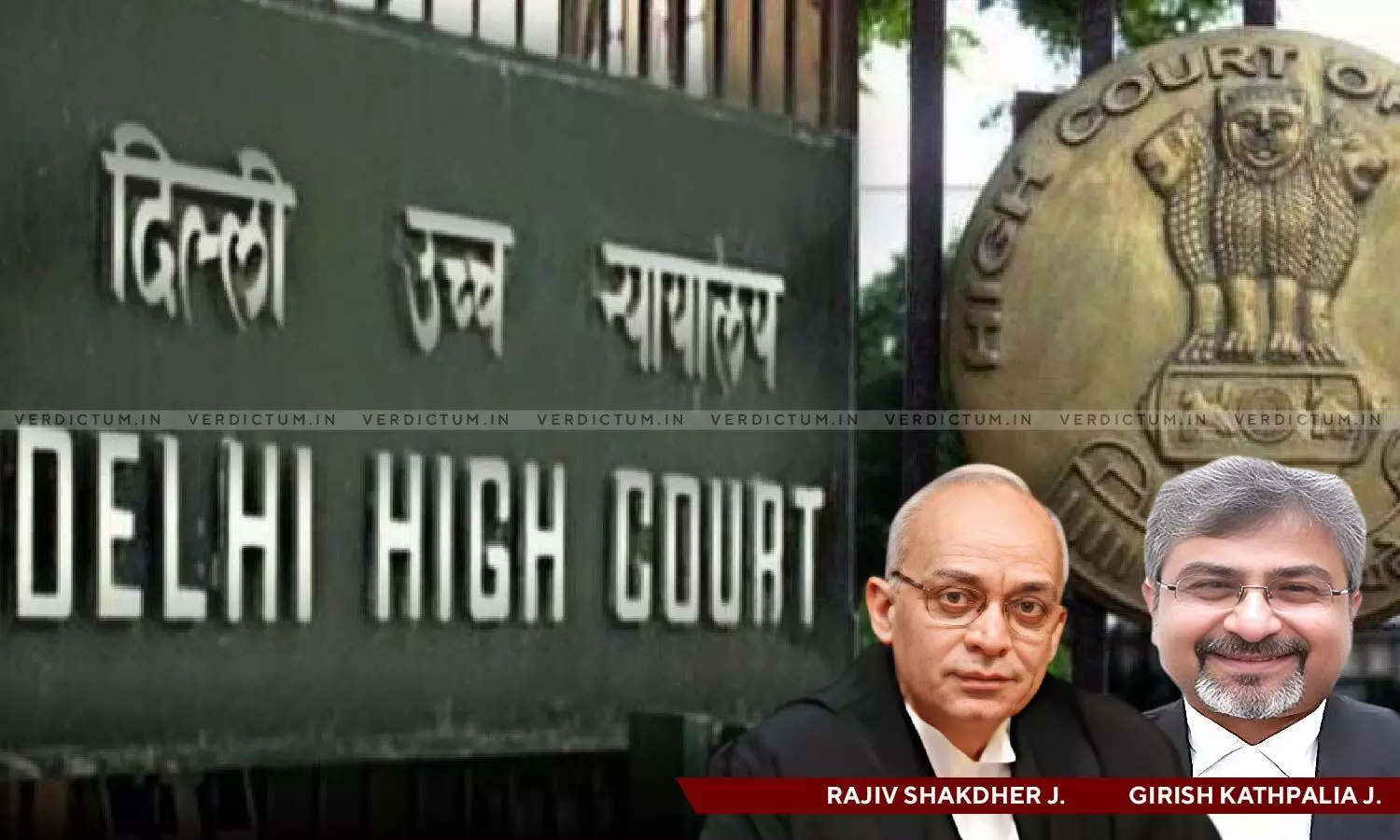
Pre-Deposit For Stay On Outstanding Demand Shall Be Calculated Based On Crystallized Tax Liability Including TDS & TCS: Delhi HC
 |
|The Delhi High Court directed the Revenue Department to refund the amount recovered for granting stay, in excess of 20% of the tax liability after holding that the amounts already collected by TDS and TCS will have to be adjusted against the amount arrived at by applying the rate of 20% against tax crystallized as per the assessment order.
Referring to the CBDT Office Memorandum dated Feb 29, 2016, the High Court held that the Revenue can recover only 20% of the tax liability crystallized as per the assessment order and not against the scaled down amount mentioned in demand notice which is arrived at after giving credit of tax deposited by third parties.
The Division Bench comprising of Justice Rajiv Shakdher and Justice Girish Kathpalia observed that “The order passed under the Act is the order framing the assessment i.e., the order dated 09.12.2022. As per the said order, the crystallized tax liability of the petitioner/assessee was Rs.44,10,05,569/-. Therefore, 20% can only be calculated against the said amount and not against the scaled-down amount i.e., Rs.33,05,82,936/-; which is a figure arrived at, after giving credit to the petitioner/assessee in respect of tax deposited by the third parties”.
Further, “the amount that an assessee would need to deposit for the purposes of obtaining stay on the demand pending the decision in the appeal will have to factor in TDS and TCS”, added the Bench.
Senior Advocate Salil Aggarwal appeared for the Assessee while Revenue was represented by Advocate Shivansh B. Pandya.
The brief facts of the case were that for the Assessment Year 2021-22, the AO passed the assessment order with the aggregate tax liability of Rs.44.10 Crore. Against the same, TDS/TCS of Rs.11.04 Cr was adjusted and notice of demand under Section 156 of the Income Tax Act was issued wherein tax liability was scaled down to Rs.33.06 Crore. Further, the AO adjusted Rs.14.11 Crore of the refund payable for the subsequent year against the liability.
The Assessee therefore approached the High Court contending that the Revenue had recovered Rs.25.15 Crore which is in excess of 20% condition for granting stay while Assessee’s appeal is pending before CIT(A). This was opposed by the Department by submitting that as per the said CBDT OM, demand is to be construed as per Section 156 and hence the amount mentioned in the notice of demand issued under Section 156 would form the basis for calculating 20% of the sum that can be recovered i.e. Rs.33.06, which is to be recovered in addition to TDS and TCS.
After considering the submission, the Bench observed that since the aggregate tax liability crystallized by framing the assessment order AY was Rs.44.10 Crore, any amount towards tax recoverable, either directly or indirectly, would fall within the stipulation of 20%, as indicated in the CBDT OM.
The Bench noted that the total amount of Rs.25.15 Crore recovered by the Revenue forms 57.04 % of the crystallized tax liability and opines that unless the conditions prescribed in paragraph 4(B) of the stipulated CBDT OM (providing conditions for prescribing higher rates) kicked in, the Revenue was entitled to recovery of only 20% of the crystallized demand.
The Bench remarked that it is not the case of the Revenue that the conditions prescribed in para 4(B) of the stipulated OM are applicable to the present case.
Rejecting Revenue’s argument that the term ‘demand’ in OM would mean the demand raised as per the demand notice by holding that Section 156 defines the ingredients of demand i.e. tax, interest, penalty, fine, or any other sum payable by the Assessee, in consequence of any order passed under the Income Tax Act, the Bench concluded that the amount that an assessee would need to deposit for the purposes of obtaining stay on the demand pending the decision in the appeal will have to factor in TDS and TCS.
Thus, the Bench directed for refund of amount in excess of 20% of Rs.44.10 Crore along-with interest after conducting requisite verifications.
Cause Title: Orion Security Solutions P. Ltd v. DCIT [Neutral Citation: 2023: DHC: 6625-DB]
Click here to read/download the Order